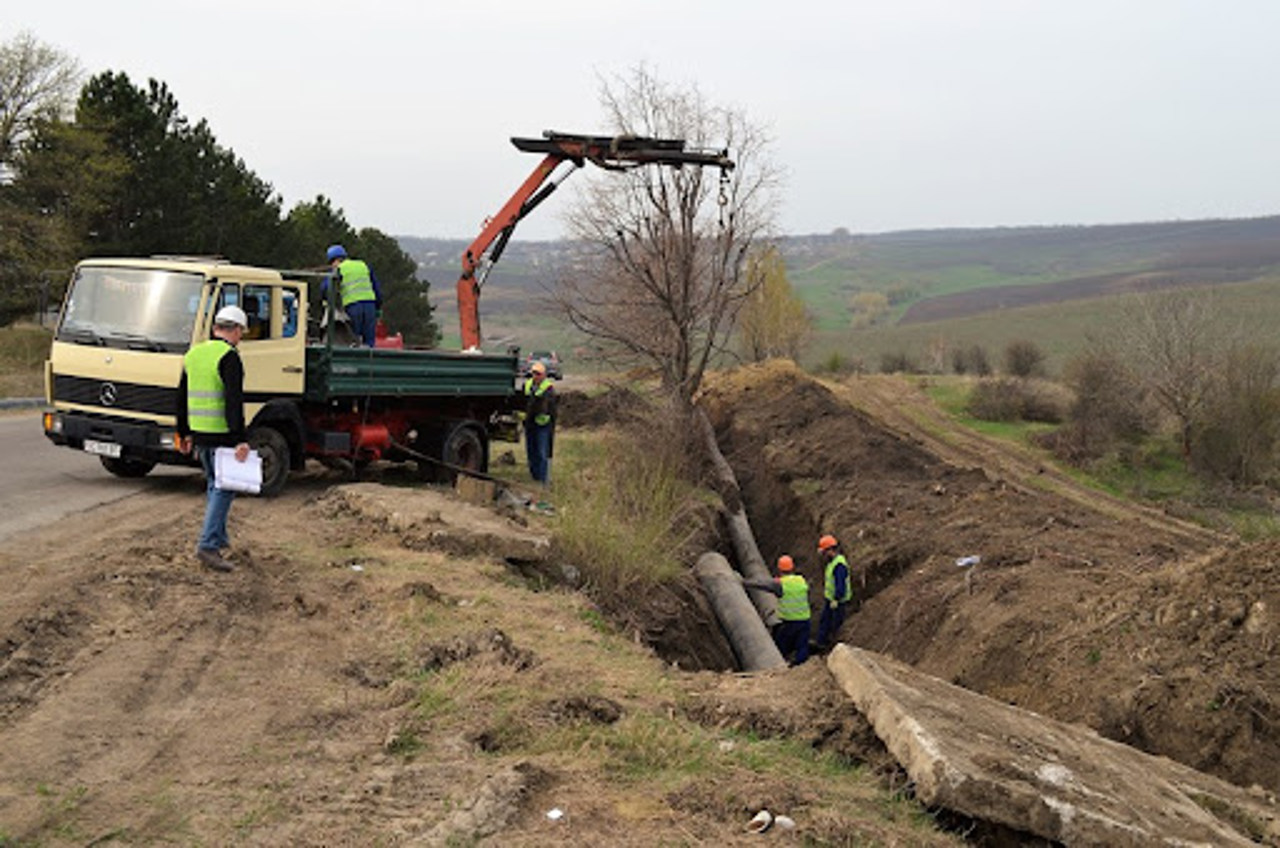The Insider: Agents living on the roof. How Moscow's secret services monitor Moldovan authorities using antennas at the Russian Embassy
On the roof of the Russian Embassy in Chisinau, the number of boards and transmitting devices increases every year, and mysterious people are constantly appearing. In particular, the movements on the roof take place before presidential and parliamentary elections or before visits of foreign delegations to Moldova.
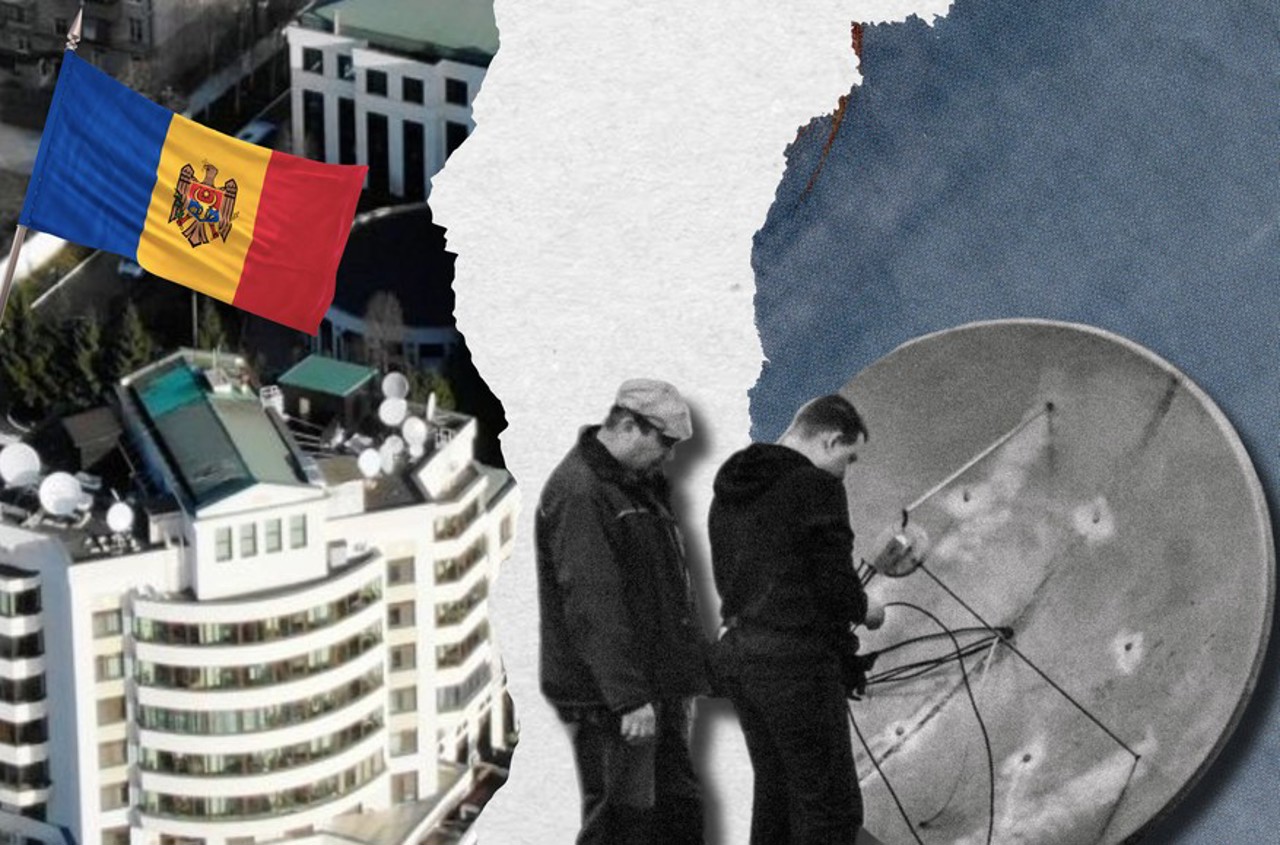
This was the case for the June 1 summit in Bulboaca, and in May, after a hacker attack on government networks, when thousands of secret documents ended up in the hands of criminals. Jurnal TV (Moldova) and The Insider identified the people on the embassy roof: they turned out to be secret liaison officers from the Foreign Intelligence Service of the Russian Federation (SVR) and the Main Intelligence Directorate of the General Staff of the Armed Forces of the Russian Federation (GRU), The Insider reports. The source also notes that they are in close collaboration with the hacking groups that hacked the mail of former German Chancellor Angela Merkel, current French President Emmanuel Macron and former US Secretary of State Hillary Clinton.
People on the roof
On May 14, 2023, when most of the townspeople were resting in their homes, around 1:30 pm, a bald man appeared on the roof of the residential building of the Russian Embassy in Chisinau. Looking carefully around, he began to adjust the transmission satellite dishes and perform some manipulations with the connecting cables. This person's name is Pavel Yakunin. He was born in the Russian town of Reazan and graduated from the Military Institute of Radioelectronics in Cerepovets before serving with the GRU. At the embassy, Yakunin holds the discreet position of military attaché, but few know that he is responsible for secret communication channels with the GRU headquarters in Moscow and the space intelligence reception centre in Vatutinki, Moscow region.
What prompted Yakunin to go up on the roof that Sunday can only be guessed at. It may have happened before the European Political Community Summit and before the cyber attacks on the websites of the Presidency, the Government, the Ministry of Foreign Affairs and the Information Technology and Cyber Security Service (STISC). As a result, almost all the correspondence of high-ranking officials "leaked".
In addition, Gagauzia was holding elections for the Bashkan on this day, and GRU curators were awaiting information from agents through a closed line of communication, The Insider adds.
After sitting on the roof for about an hour, Yakunin disappeared.
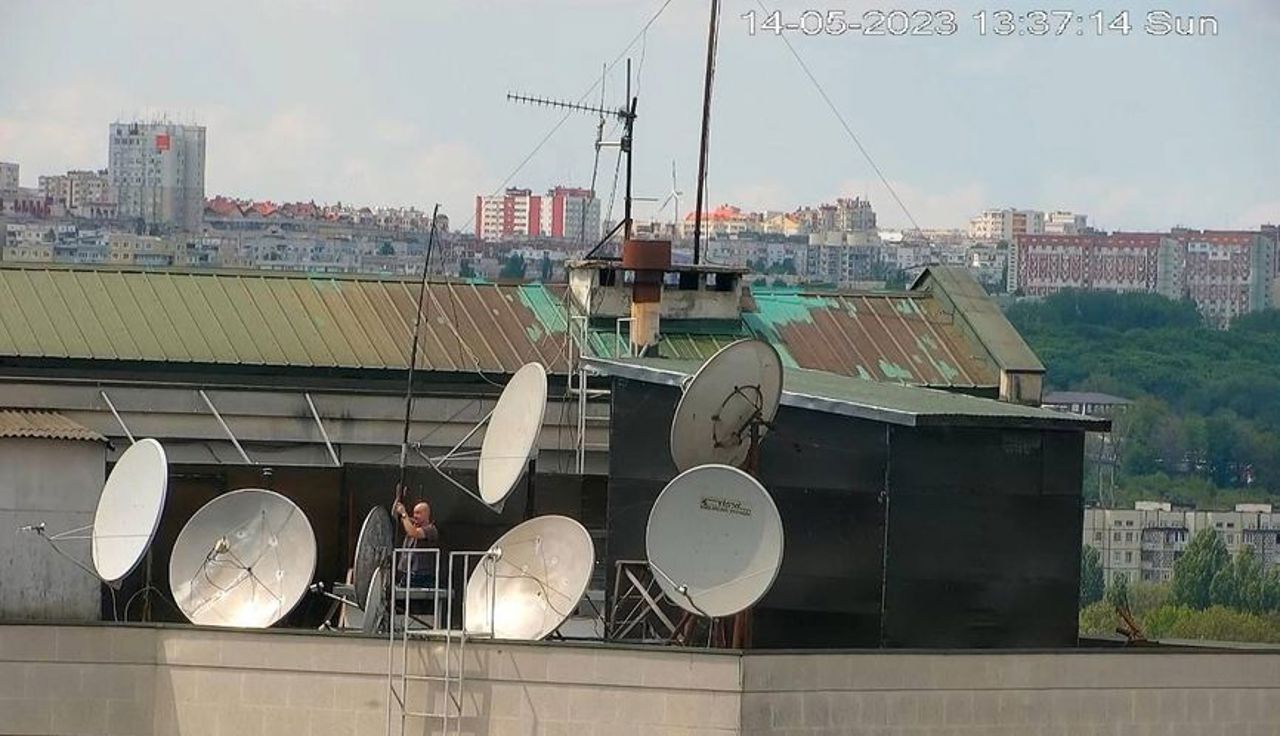
Russian intelligence began to intensify its interest in Moldova in 2015, when Moscow relied on socialist Igor Dodon, who a year later took over the country's presidency. The Kremlin's protégé needed the support of friendly special services, and that's when officers from the GRU, Foreign Intelligence Service, FSB Service 5 and employees of the Moldovan department of the presidential directorate for interregional and cultural relations with foreign countries, made up of intelligence officers, increased their visits to Chisinau.
Thus, according to The Insider's sources in the Border Police, several GRU figures have entered the Republic of Moldova, specialising in phone tapping or cyber attacks. They are Sergei Sarapulov, Sergei Koroliov, Igor Naumenko, Alexander Mironov, Konstantin Valdai, Alexander Kushurenko and Alexander Chikurov.
In addition to those mentioned above, 23 other officers, this time from the technical department of the Russian Foreign Intelligence Service, could be seen on the roof of the Russian Embassy.
What is installed on the roofs
Journalists from Jurnal TV have noticed that as soon as "new tourists" arrive from Moscow, a kind of commotion begins on the embassy's rooftop with broadcasting antennas.
They counted a total of 28 antennas, masts, transmitting and receiving devices installed both on the roofs of the embassy and the neighbouring building where diplomats and technical staff live. It is important to note that this number far exceeds the record held by the Russian Embassy in Belgium, which has 17 antennas, according to the Dossier Center portal.
Most of the antennae are located in a residential building next to the embassy, which Russian diplomats call "our hotel". On the roof of the so-called hotel there are classical parabolic antennas, Yagi-Uda grids, portable Magnetic Loop antennas and vertical pins.
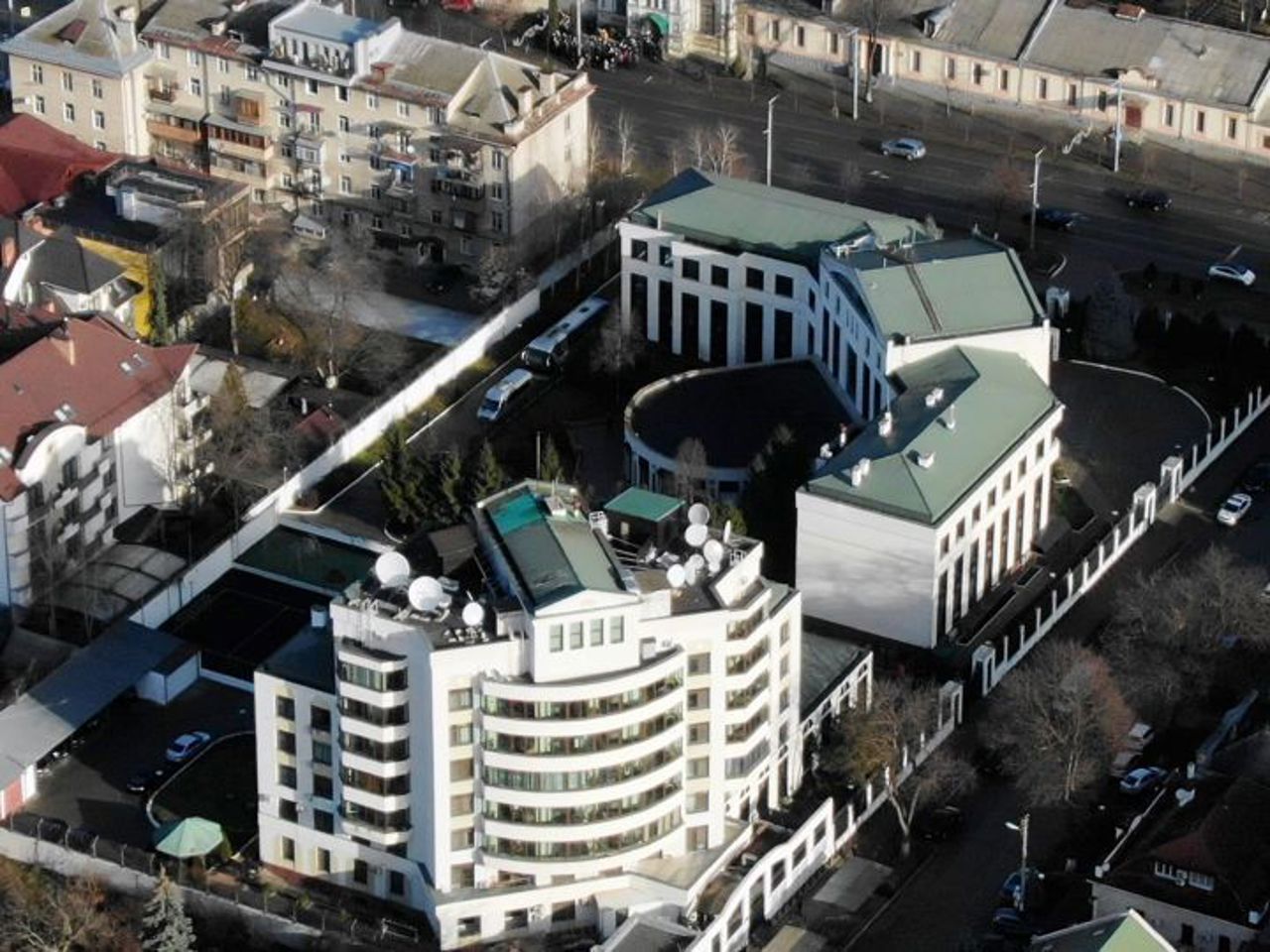
According to experts, satellite communications, a microwave relay line or a WI-FI router signal can be set up with the help of satellite dishes. Such an antenna can also identify the location of ships, aircraft and guided missiles.
Parabolic antennas intercept satellite phone signals, for example Thuraya systems allow interception of phone conversations in almost all European countries.
Now the liaison officers and 'listeners' in Chisinau are under the command of Alexander Vasinovich. He often appears on the embassy roof and gives instructions to subordinates. Vasinovich began his service in the GRU in the village of Kildinstroy near Murmansk. Prior to his appointment in the Republic of Moldova, Vasinovich spied in Germany for several years.
His children have posted many photos on social media from their time living in Berlin and travelling the world. Two other GRU officers are Vasinovich's subordinates: Vitali Renev, originally from Riga, and Pavel Yakunin, mentioned above, seen on the roof before the European Political Community Summit.
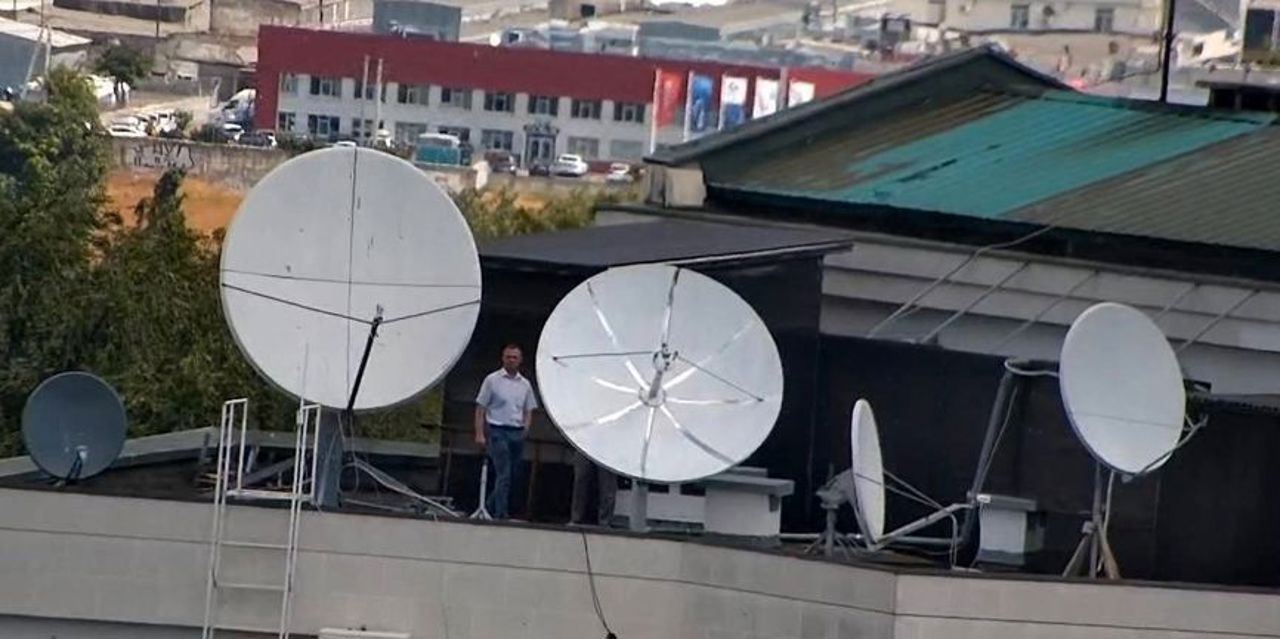
A Border Police source told Insider that the wives of some of the intelligence officers mentioned above suspiciously often fly the Chisinau-Moscow route. In most cases, they have flash drives and hard drives in their hand luggage.
"We believe that these women are used as couriers to transport files that are too 'heavy'. They enjoy diplomatic immunity and, unfortunately, we have no right to check them," the sources said.
The Insider's investigation also notes that prior to the cyber attacks on the websites of Moldovan government institutions, "active movement" took place not only on rooftops but also in the centre of Chisinau. Cars with passengers left the embassy and periodically stopped in front of the Parliament, the Presidency, and the Intelligence and Security Service. They had small backpacks in which laptops and tablets fit.
Cybersecurity experts interviewed suggested that the mystery passengers in the cars were most likely members of hacker groups APT28 or APT29, closely associated with Russian special services.
These groups have previously attacked the White House, the foreign ministries of the Czech Republic, Poland, Germany, Italy, Latvia, Estonia, Ukraine, Norway and the Netherlands, the defence ministries of Denmark, Italy, Germany, NATO headquarters, the OSCE, the IOC, WADA and others. They even managed to hack the mail of former German Chancellor Angela Merkel and French President Emmanuel Macron.




